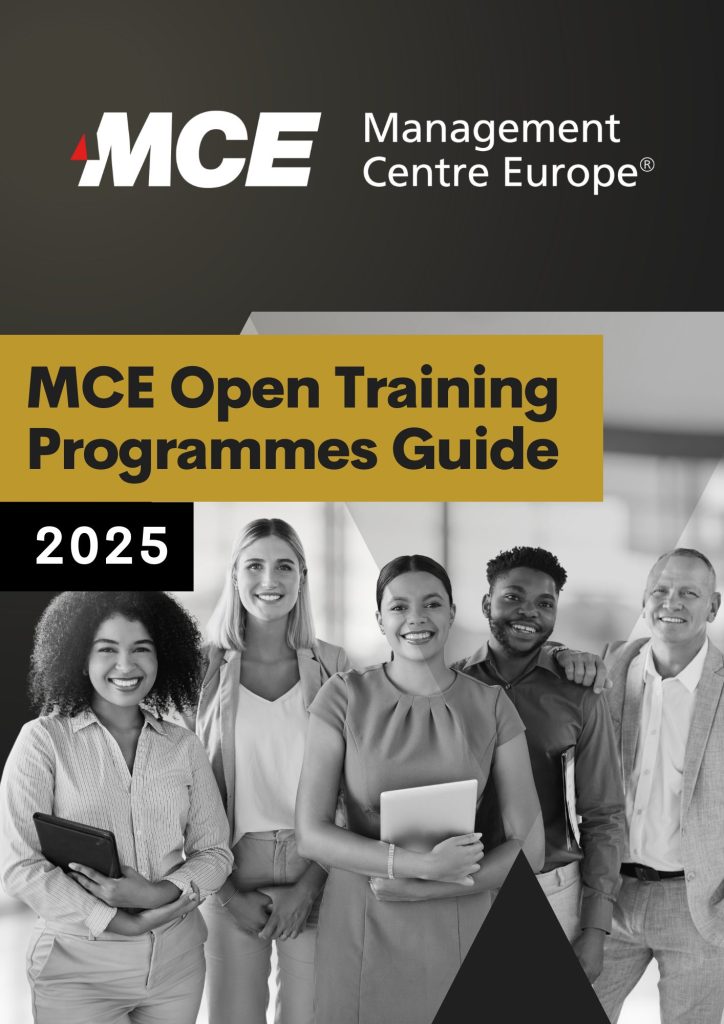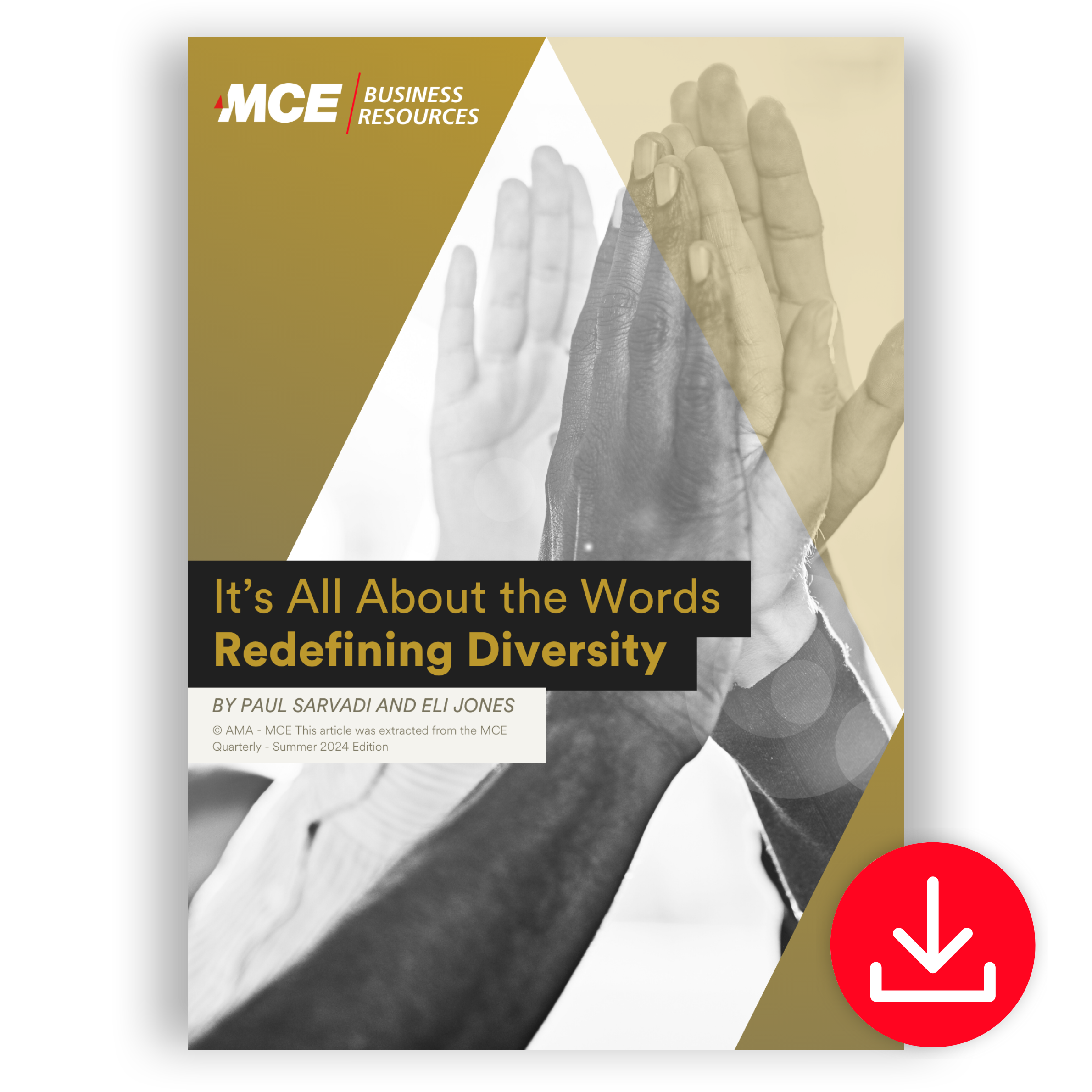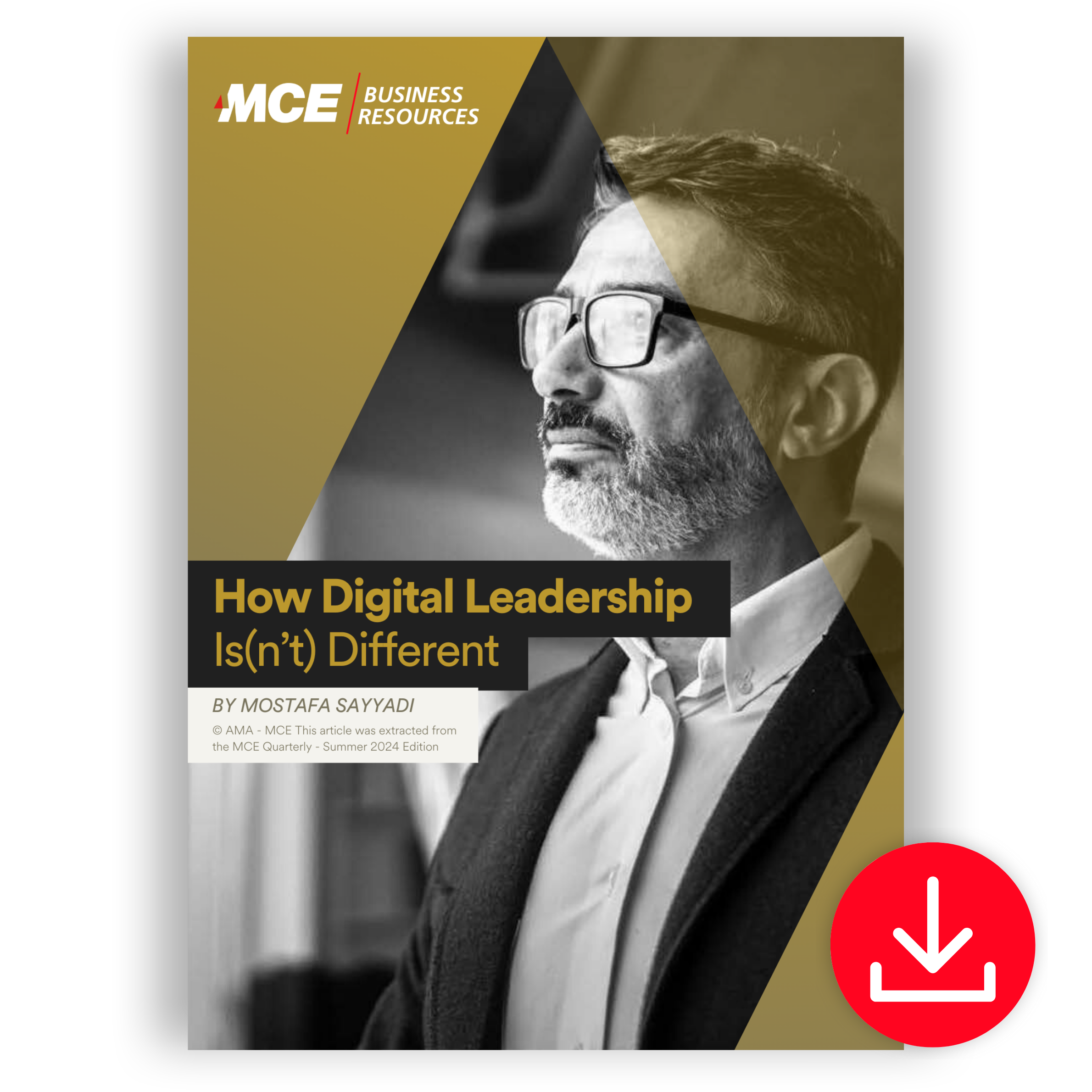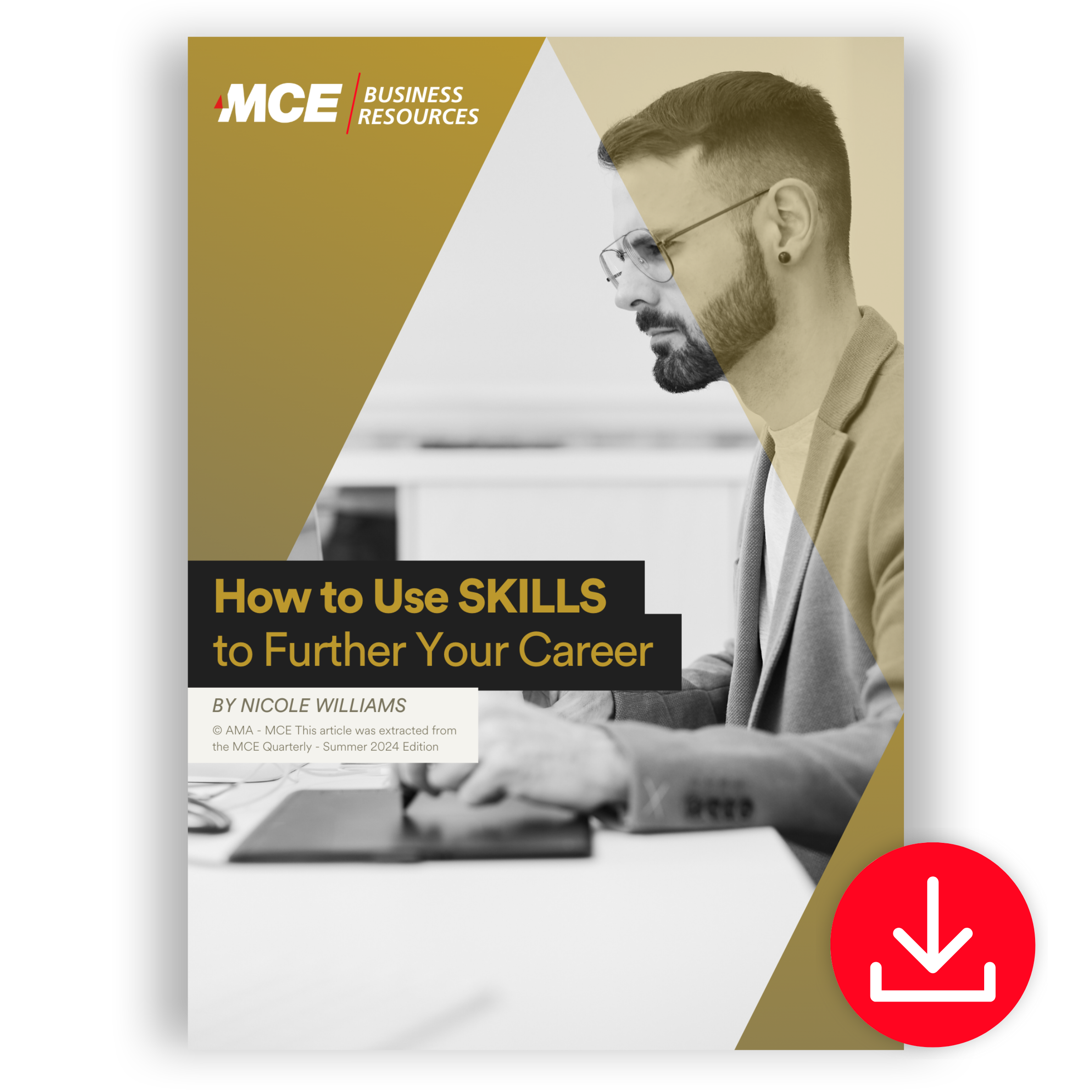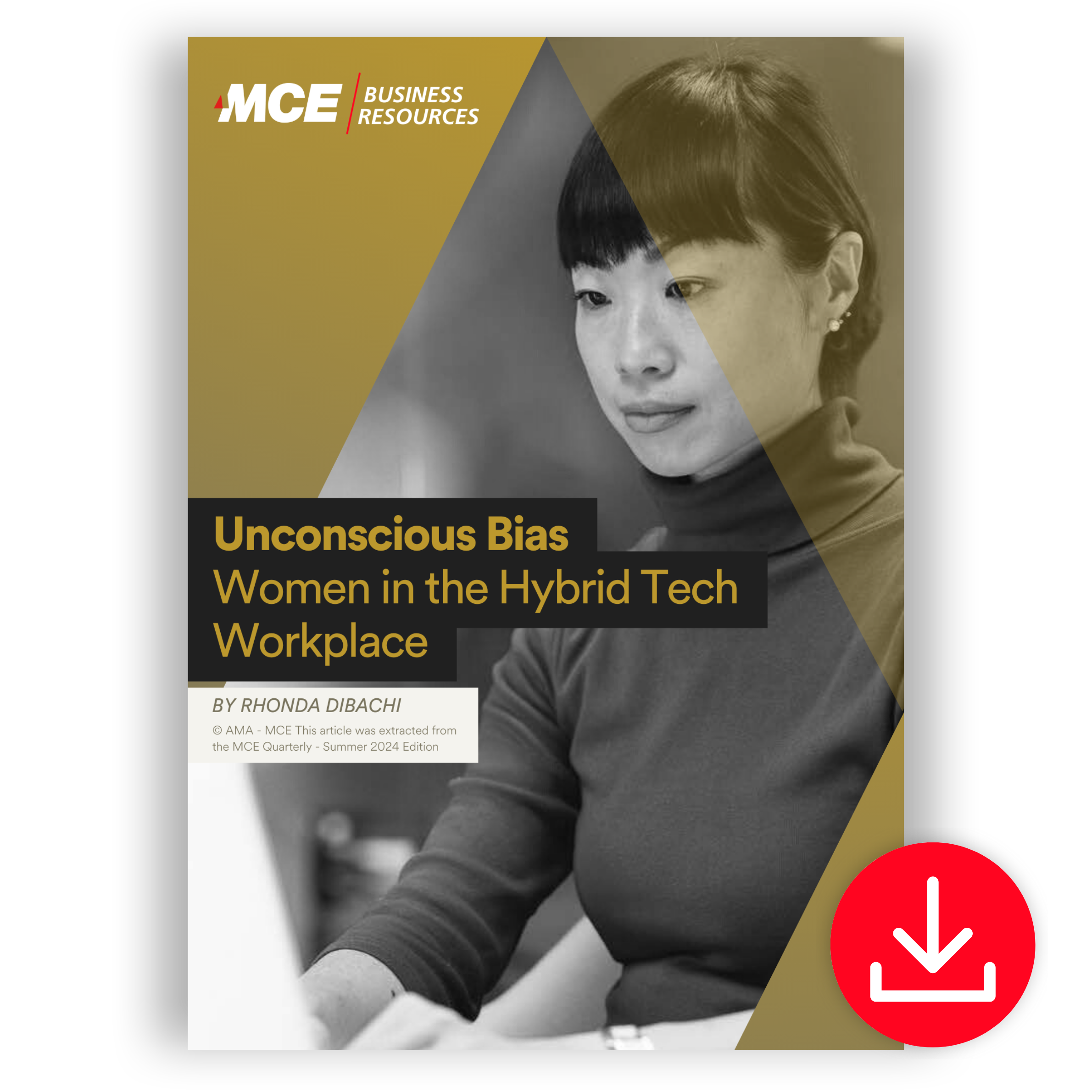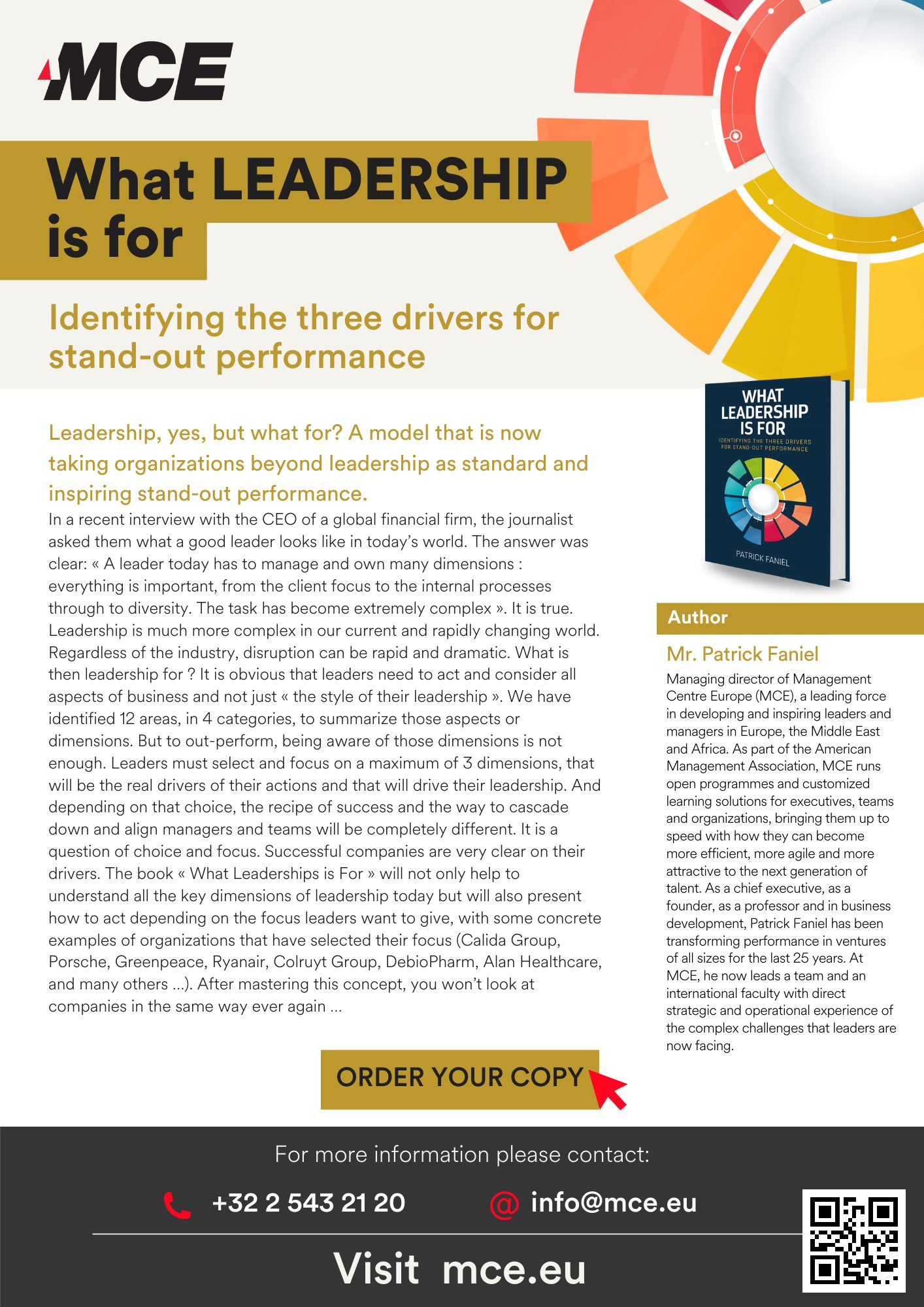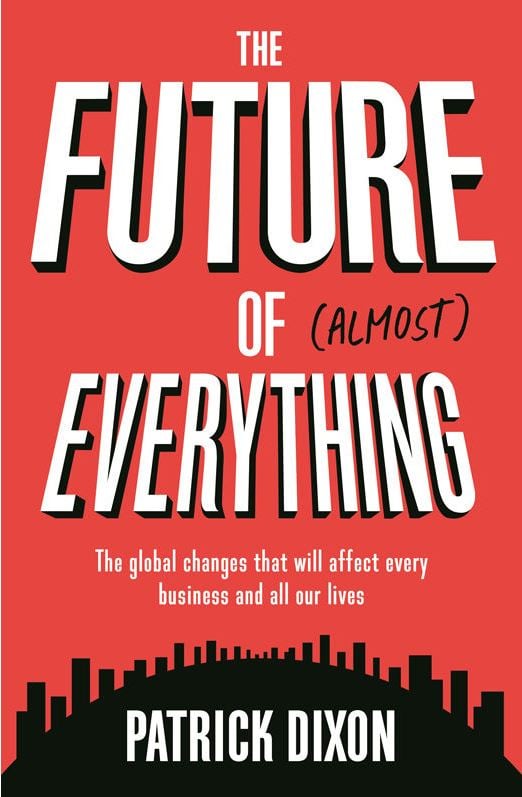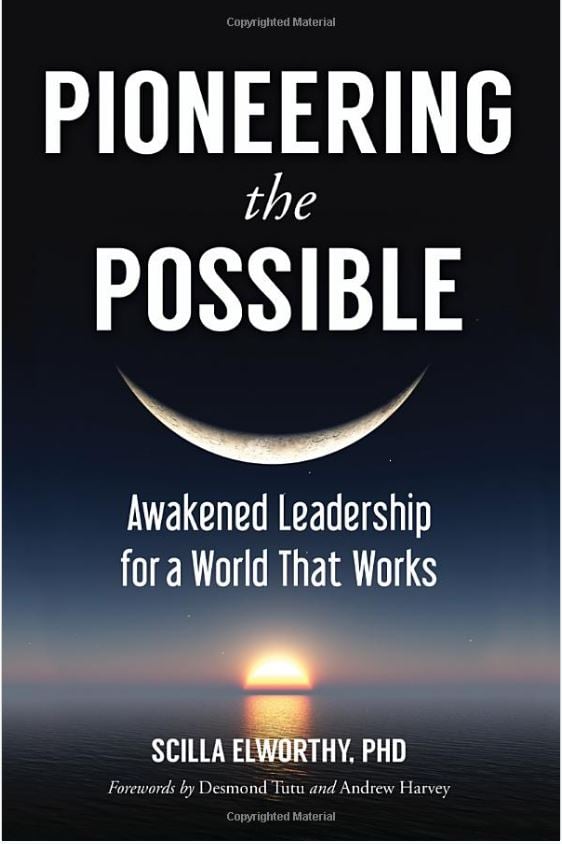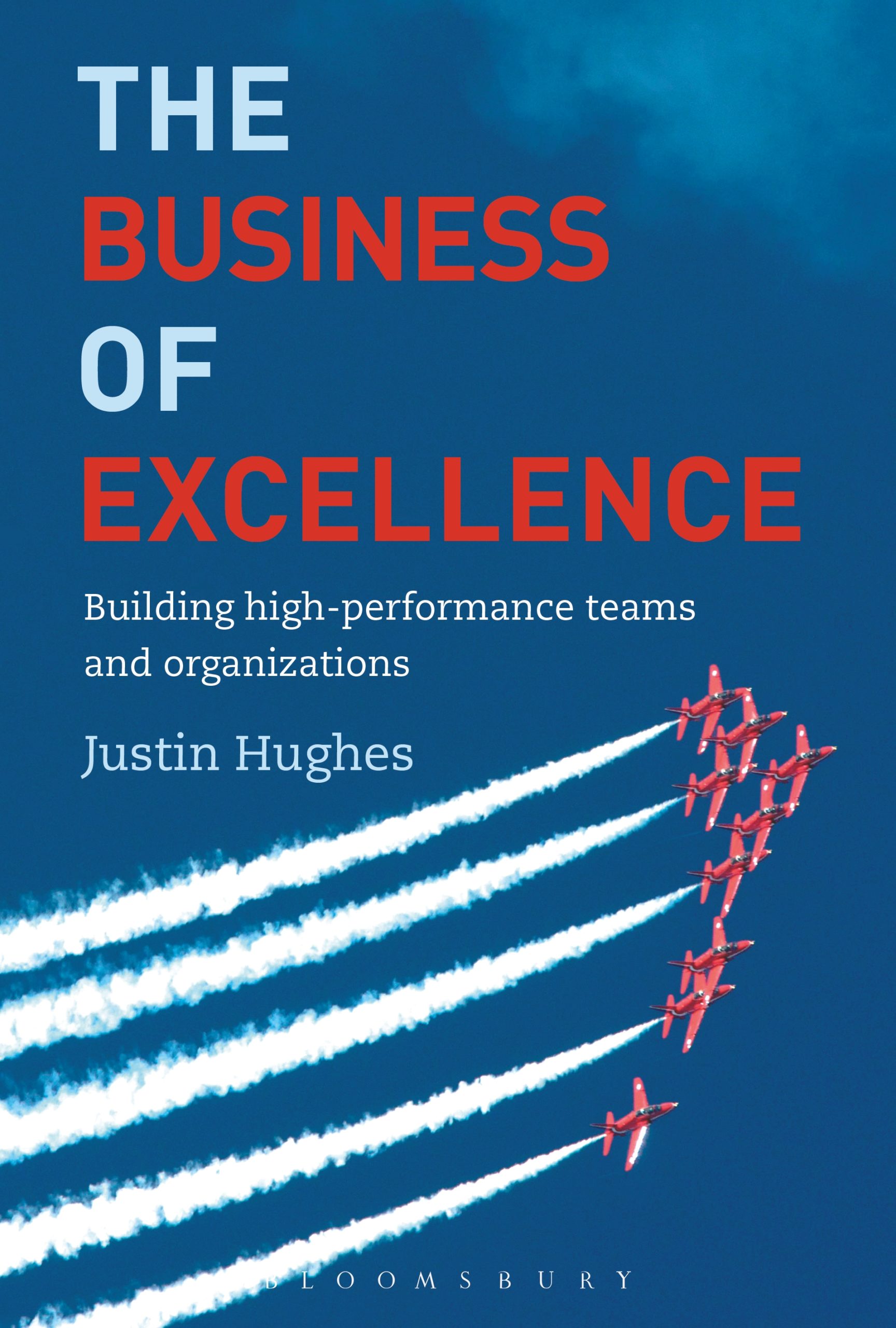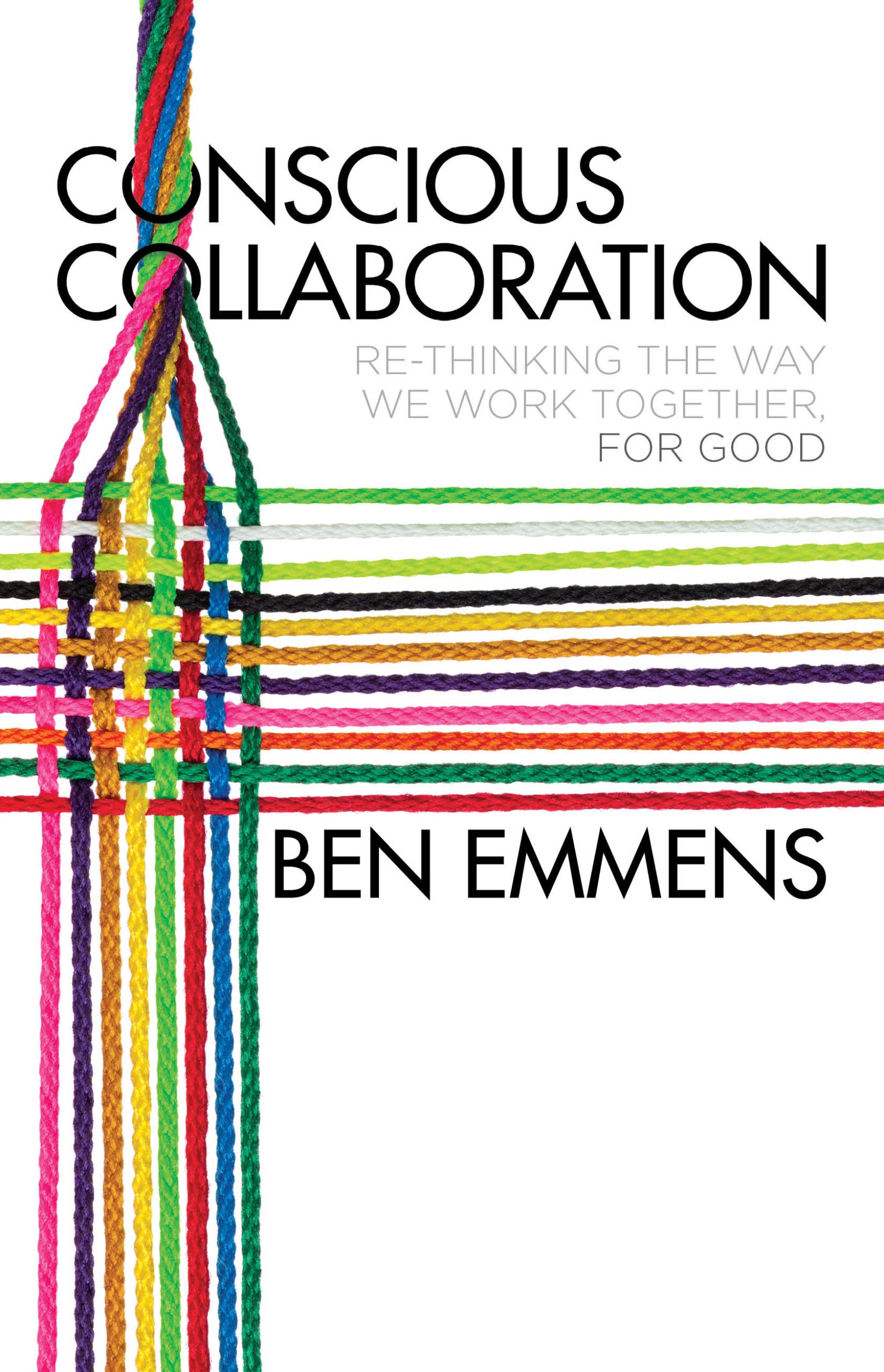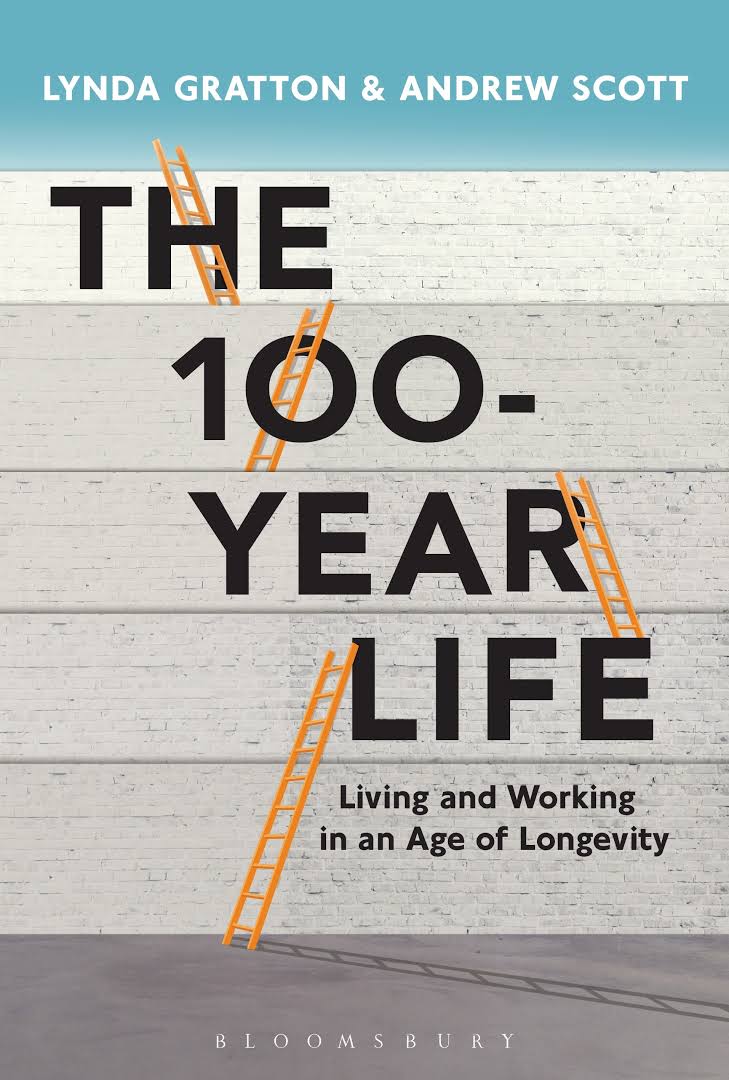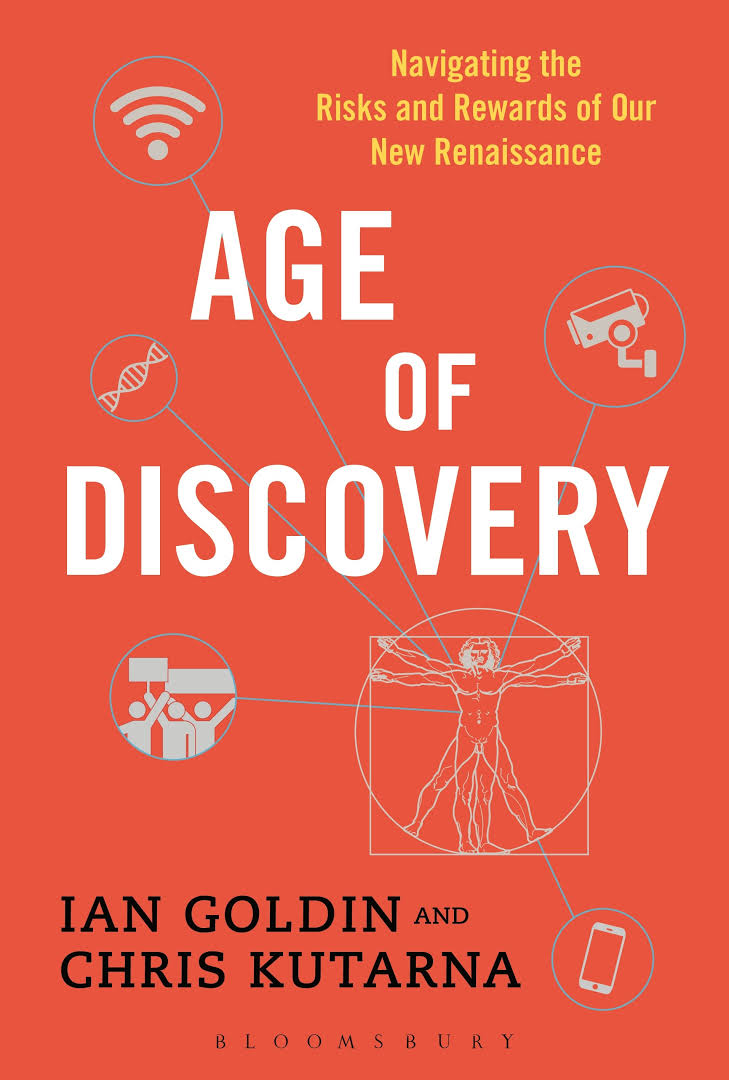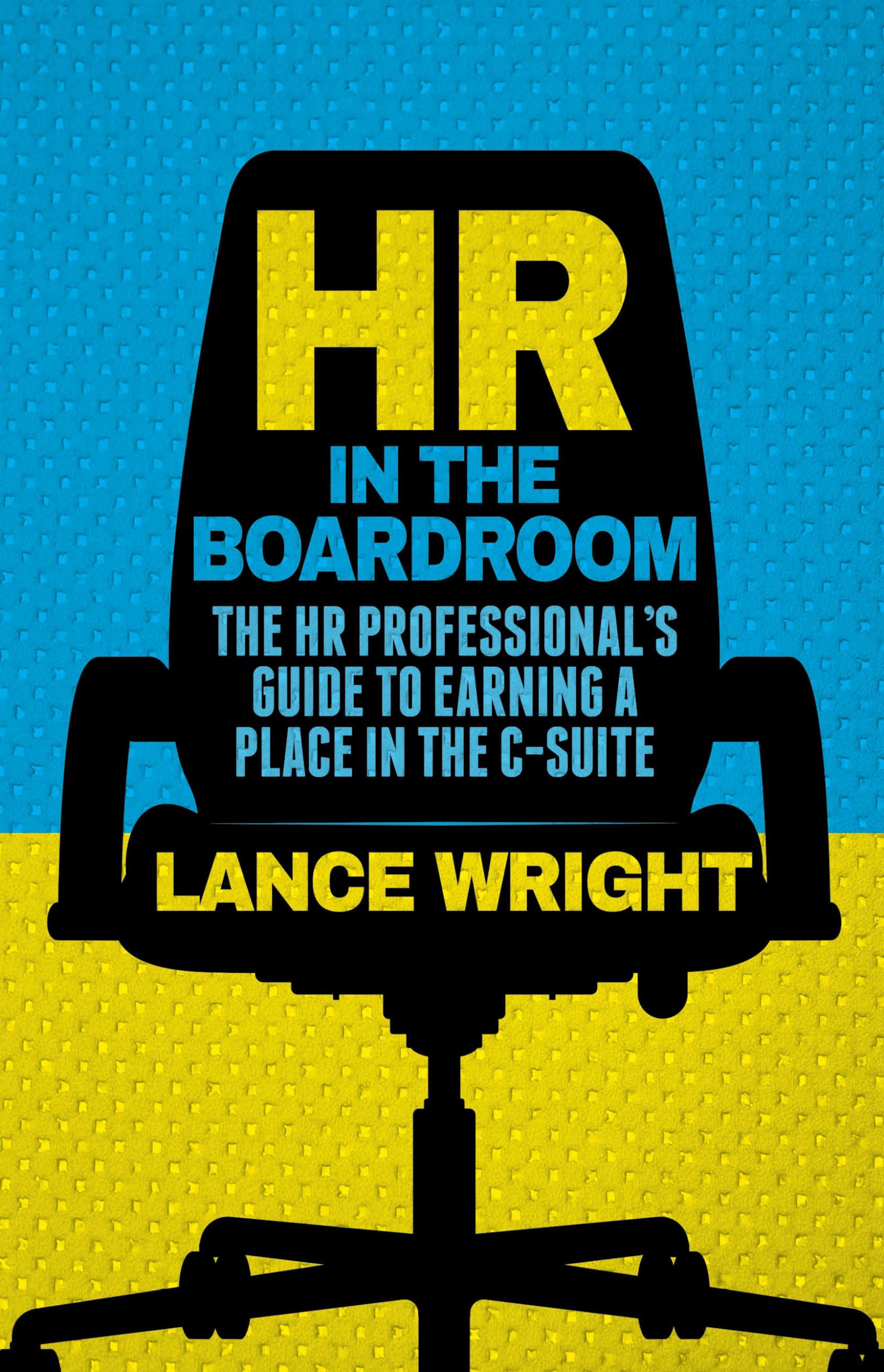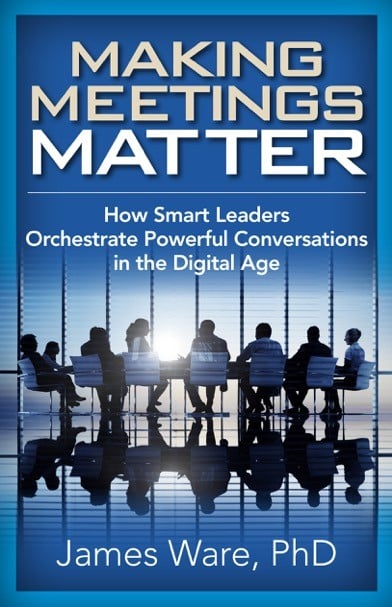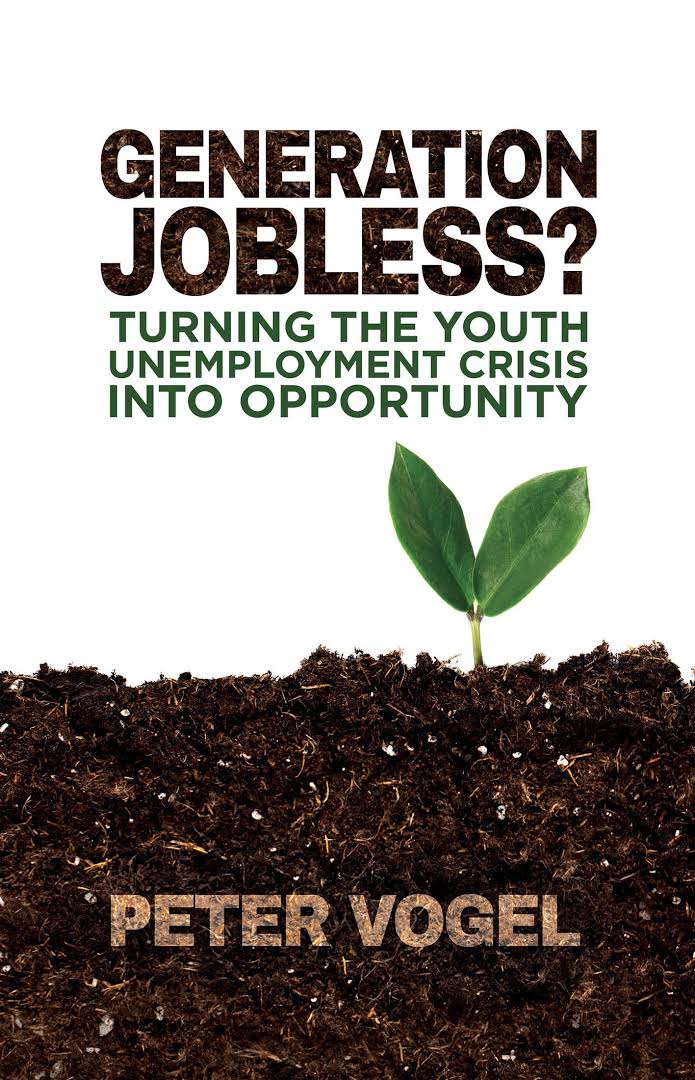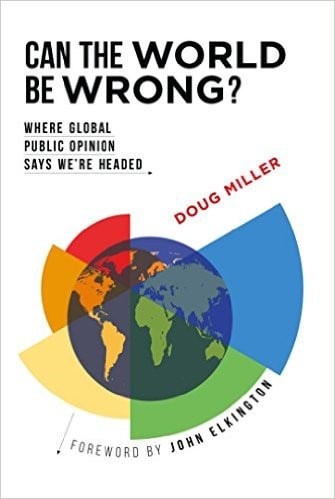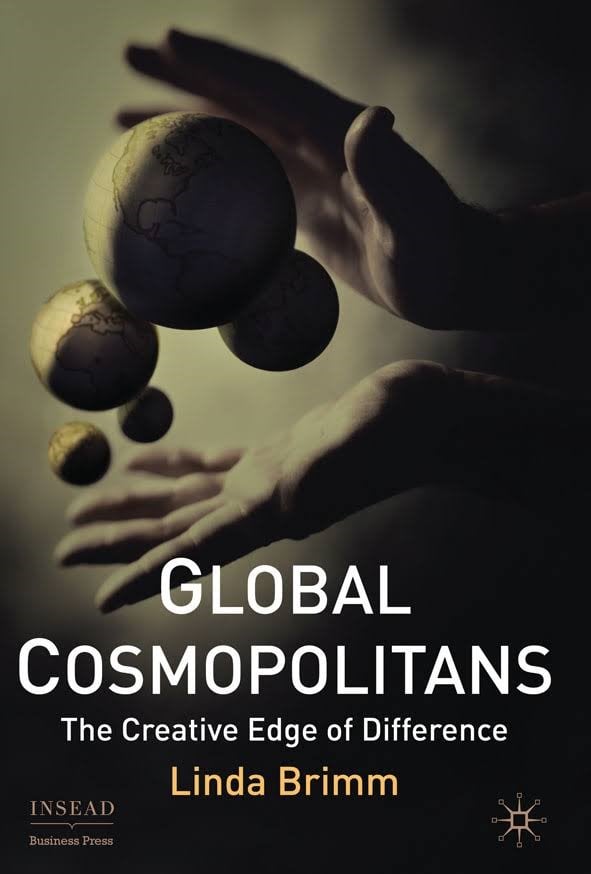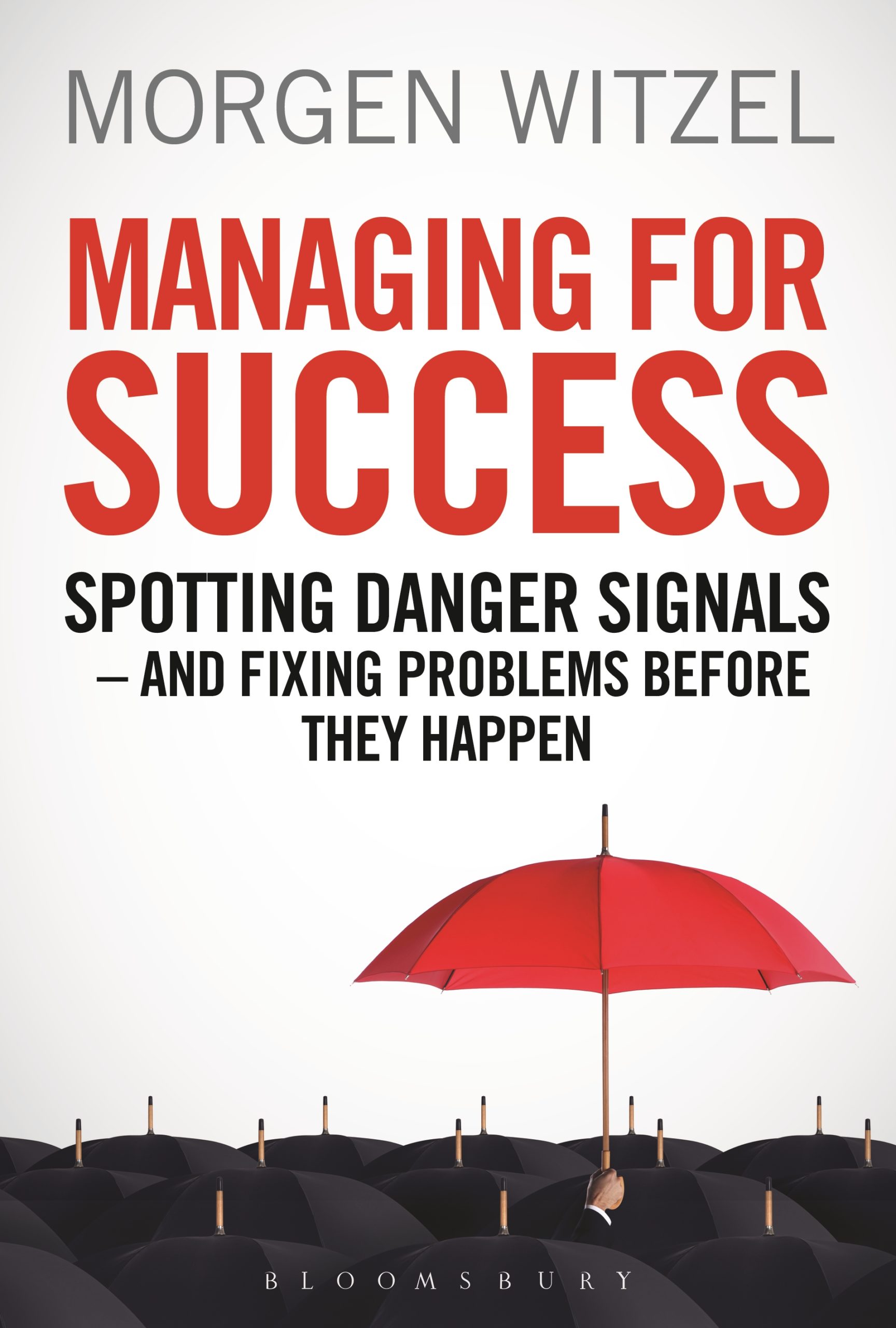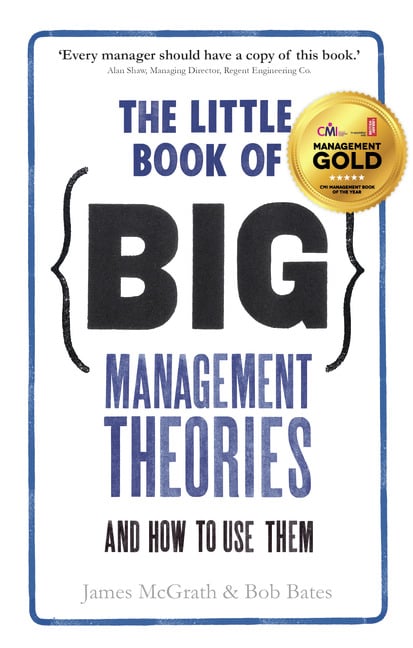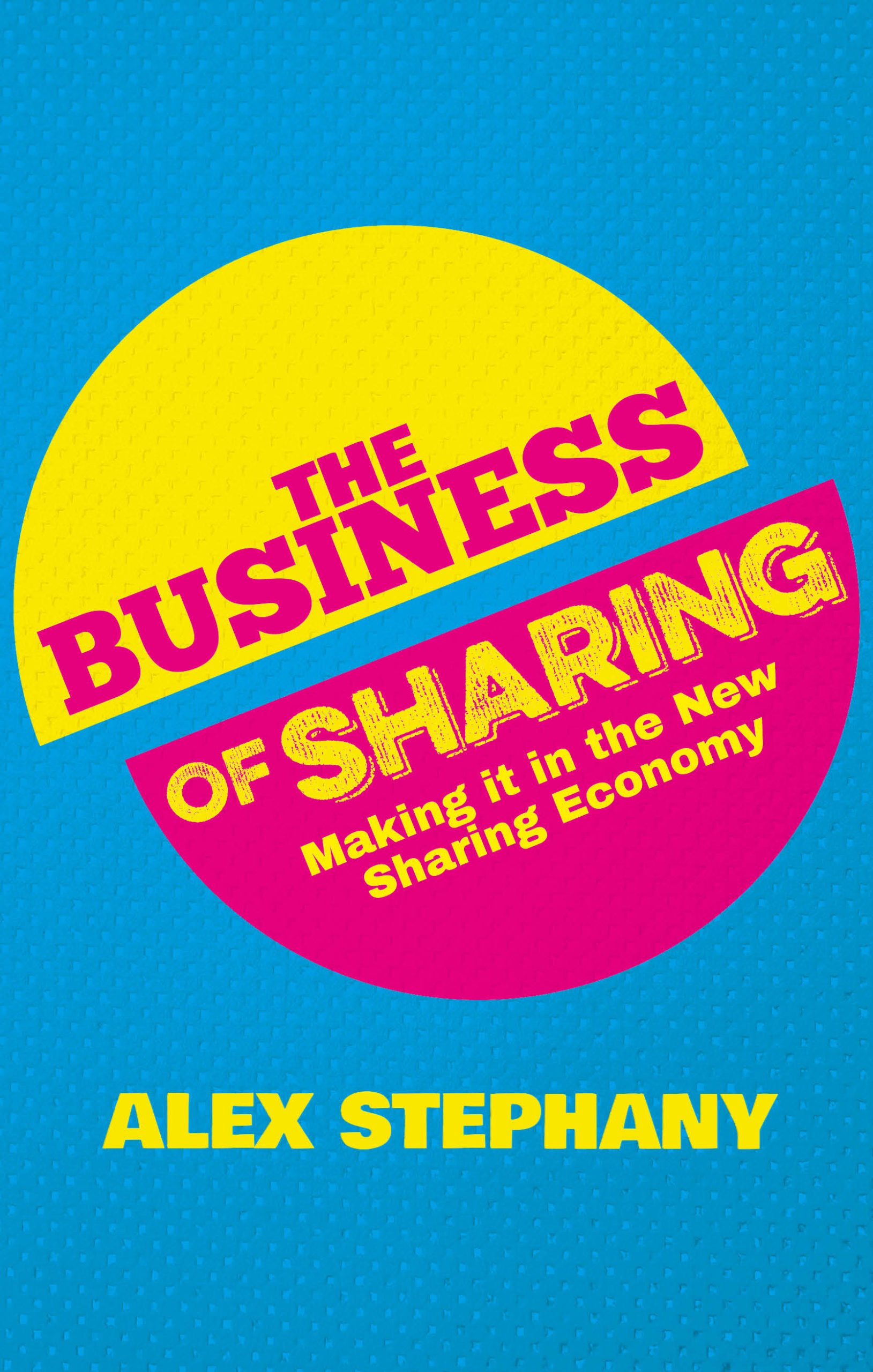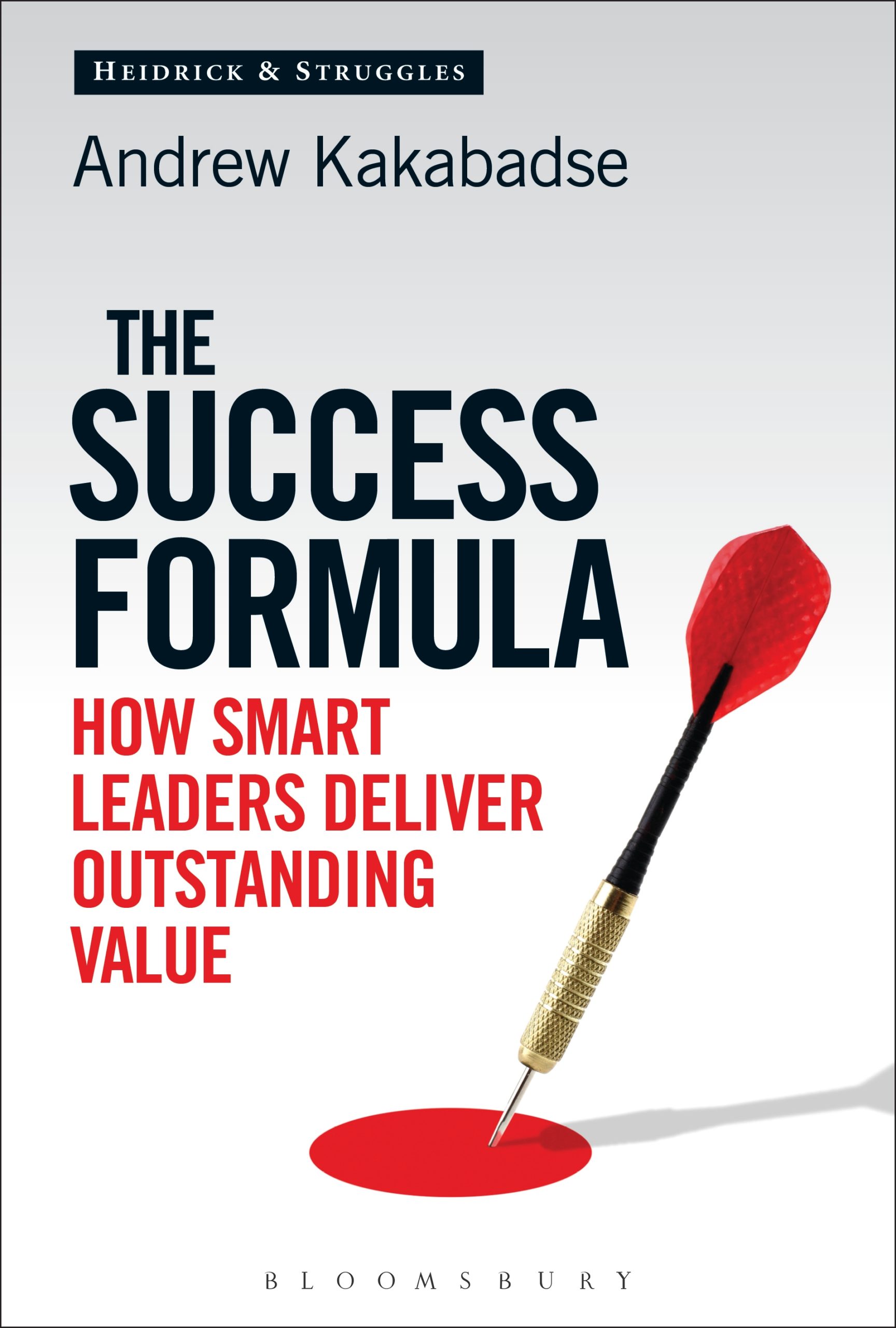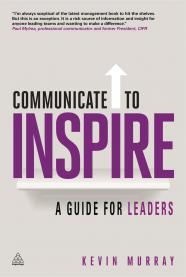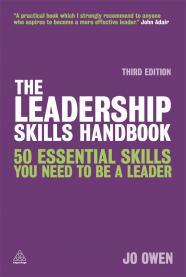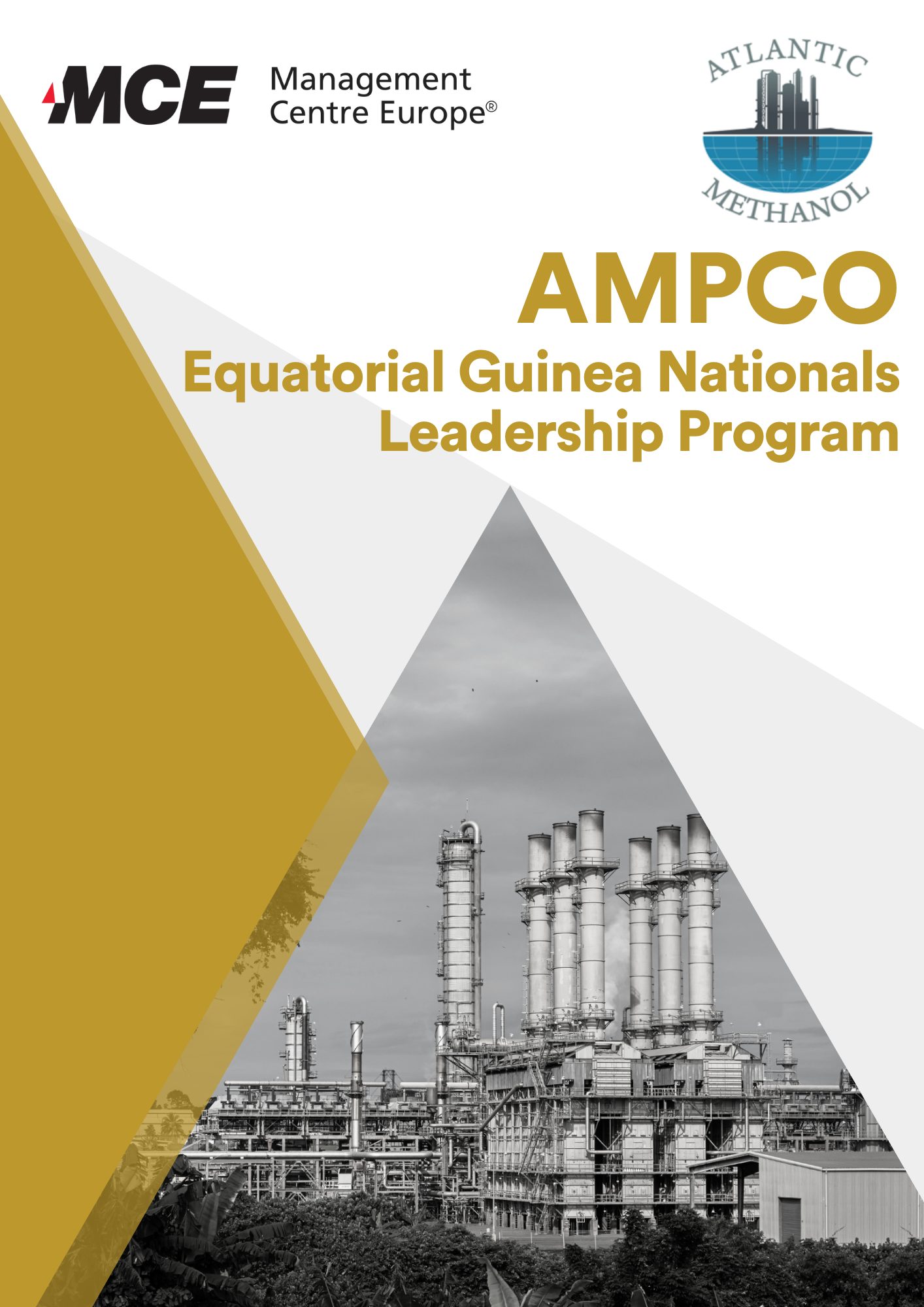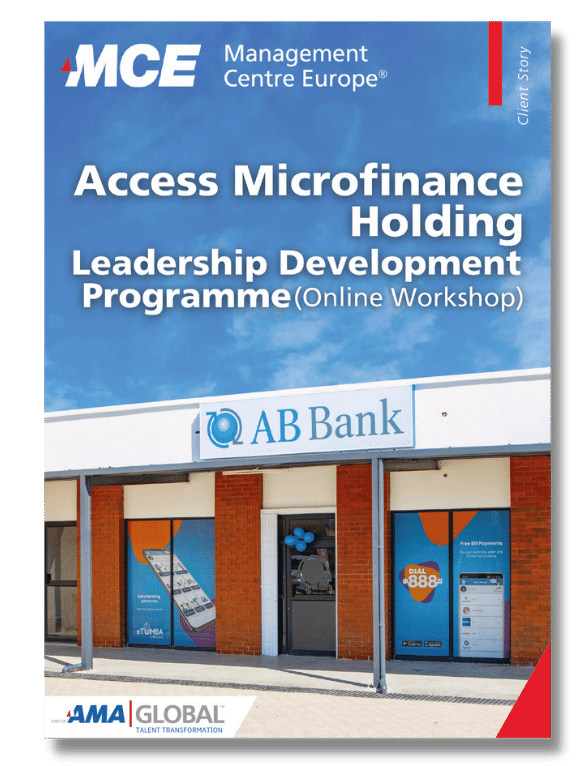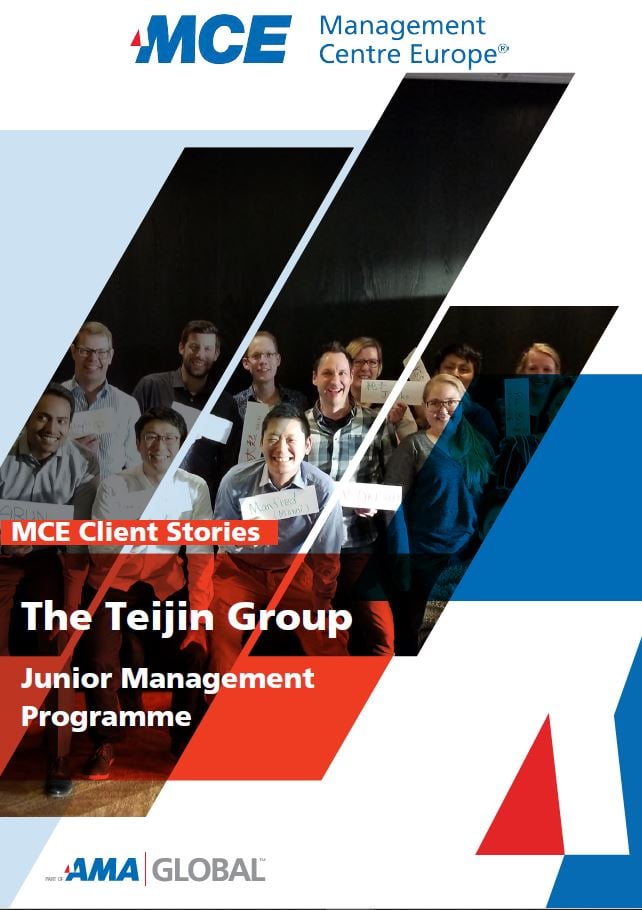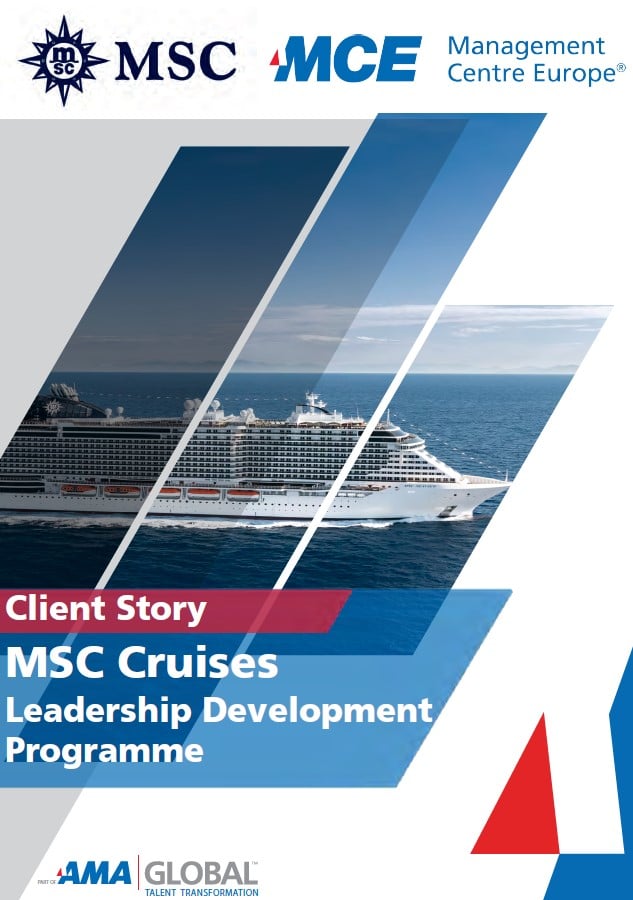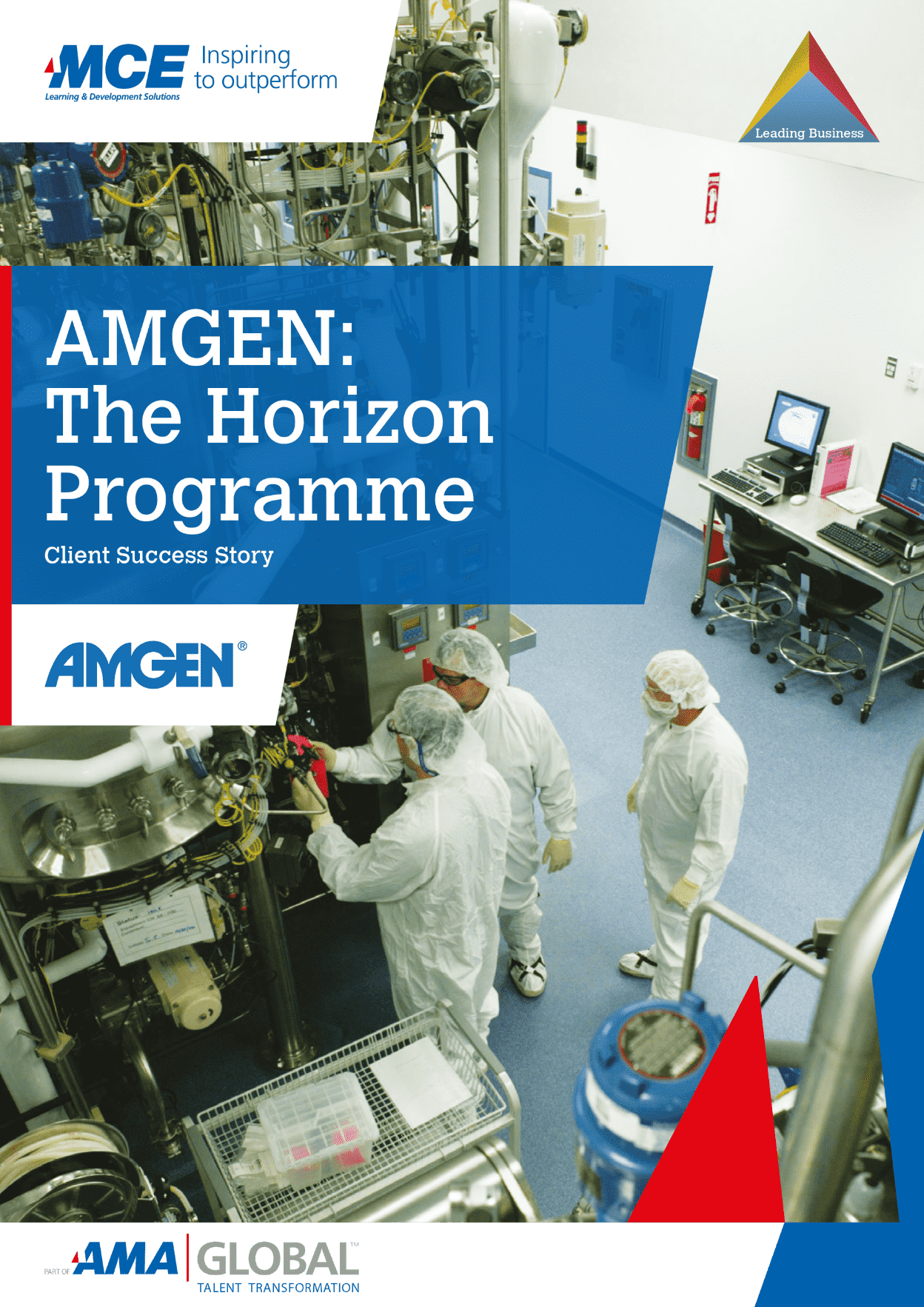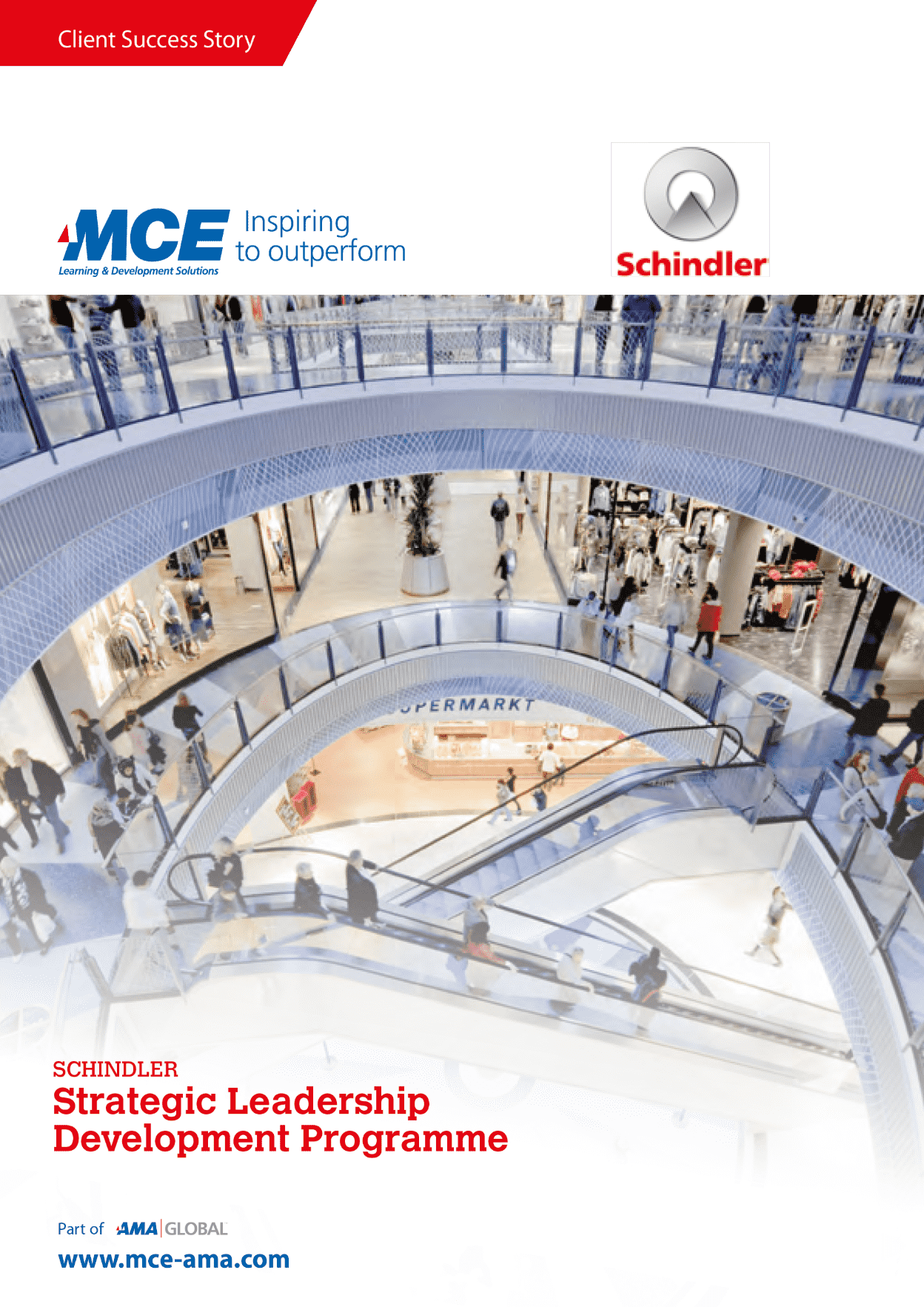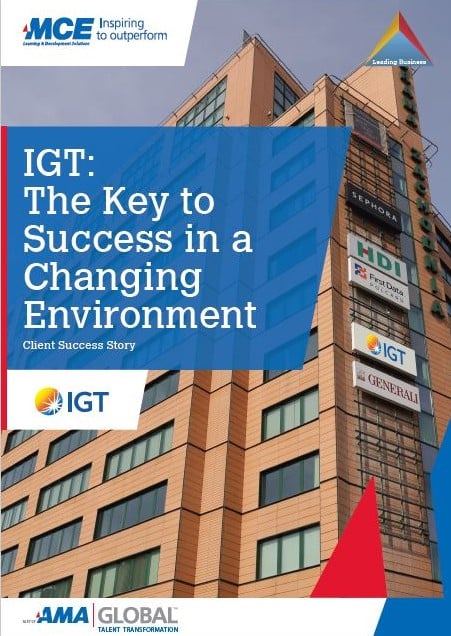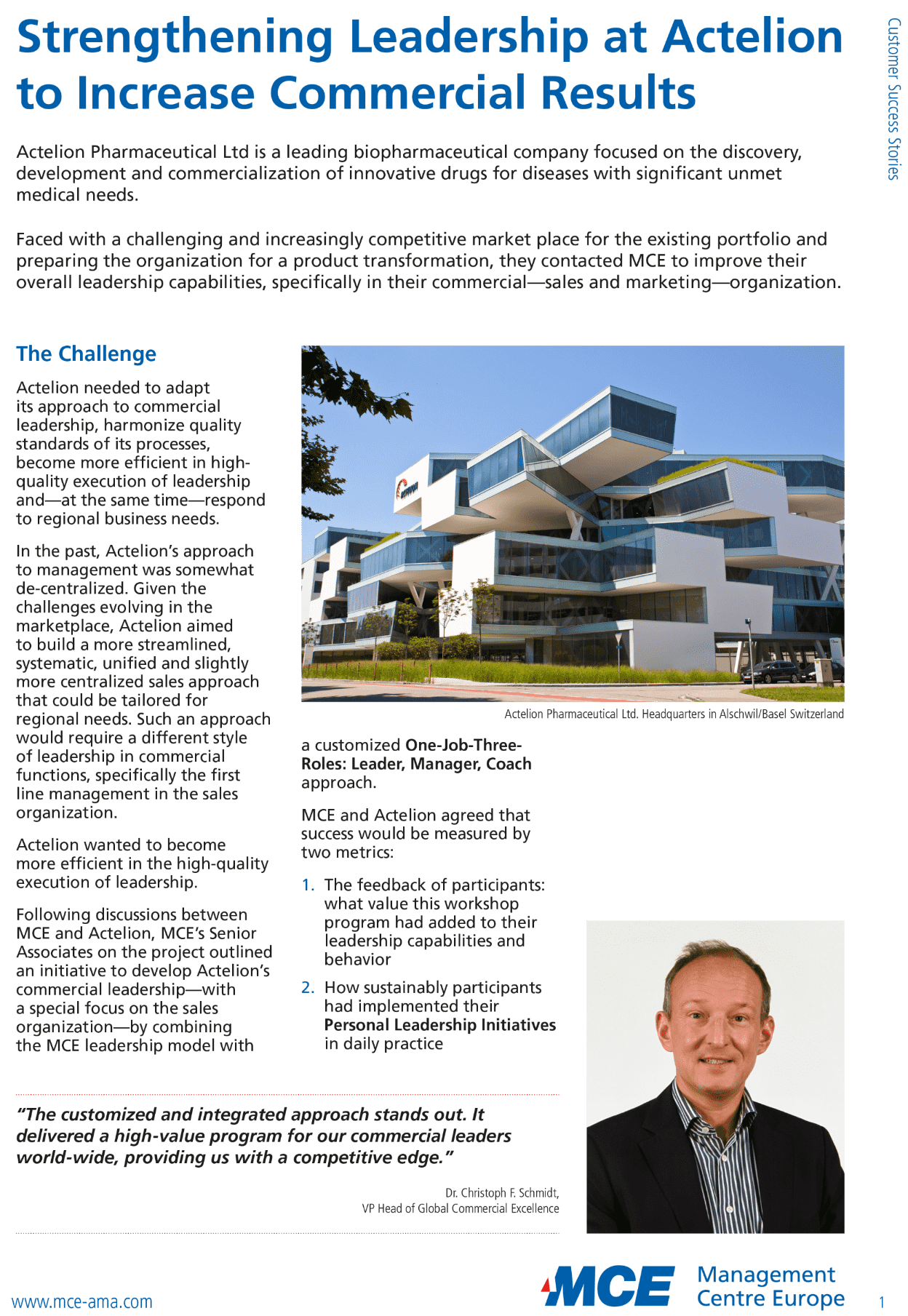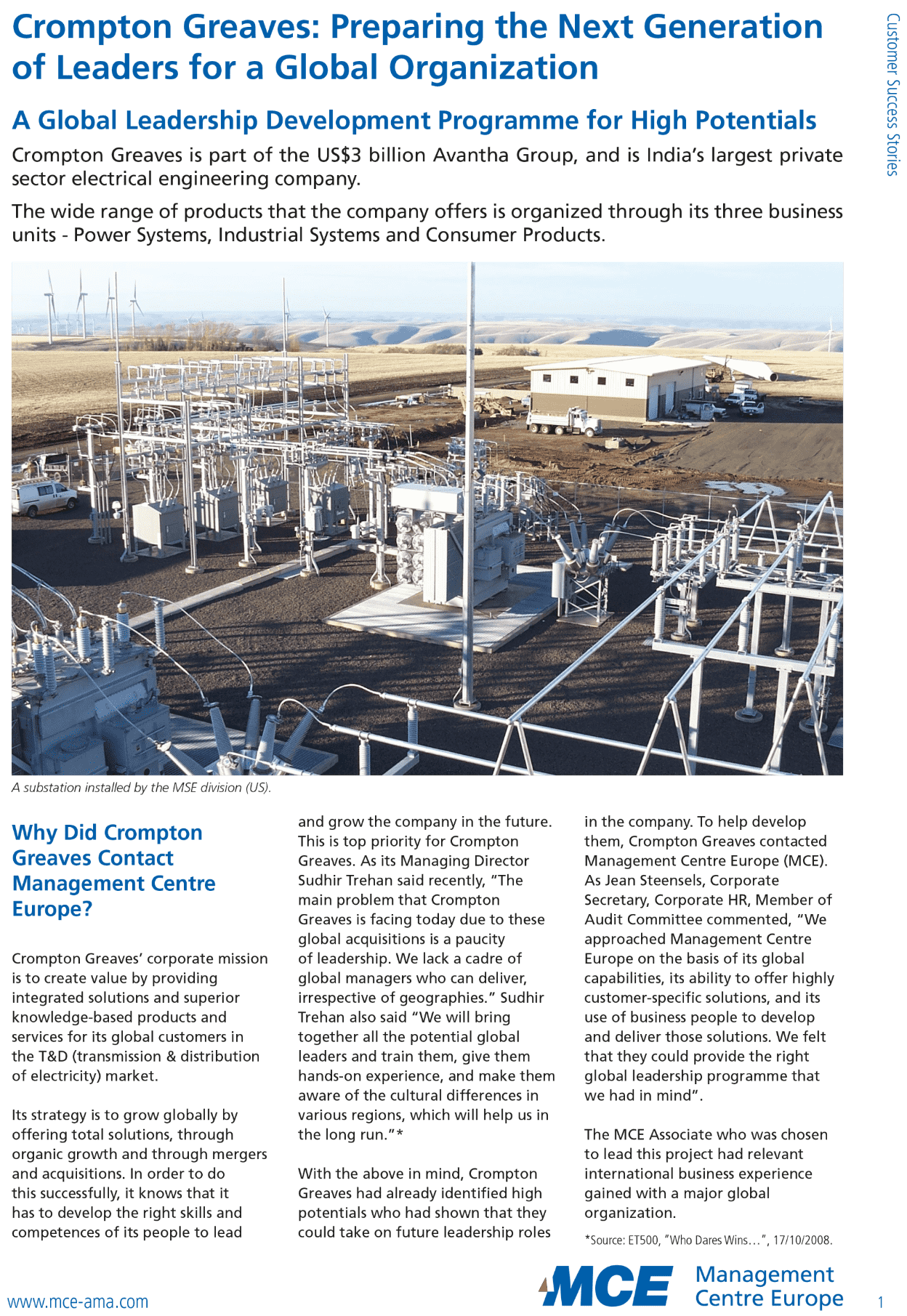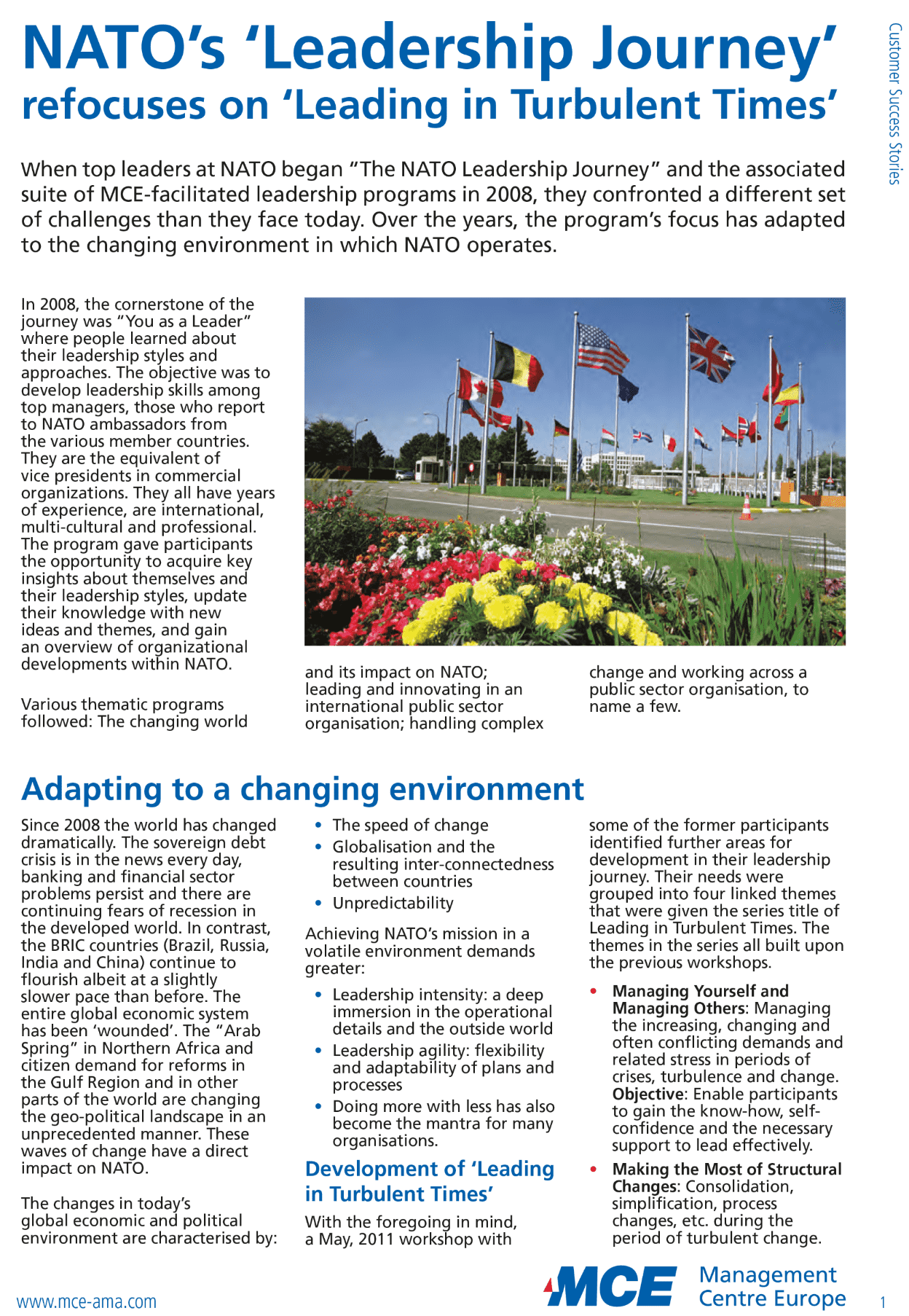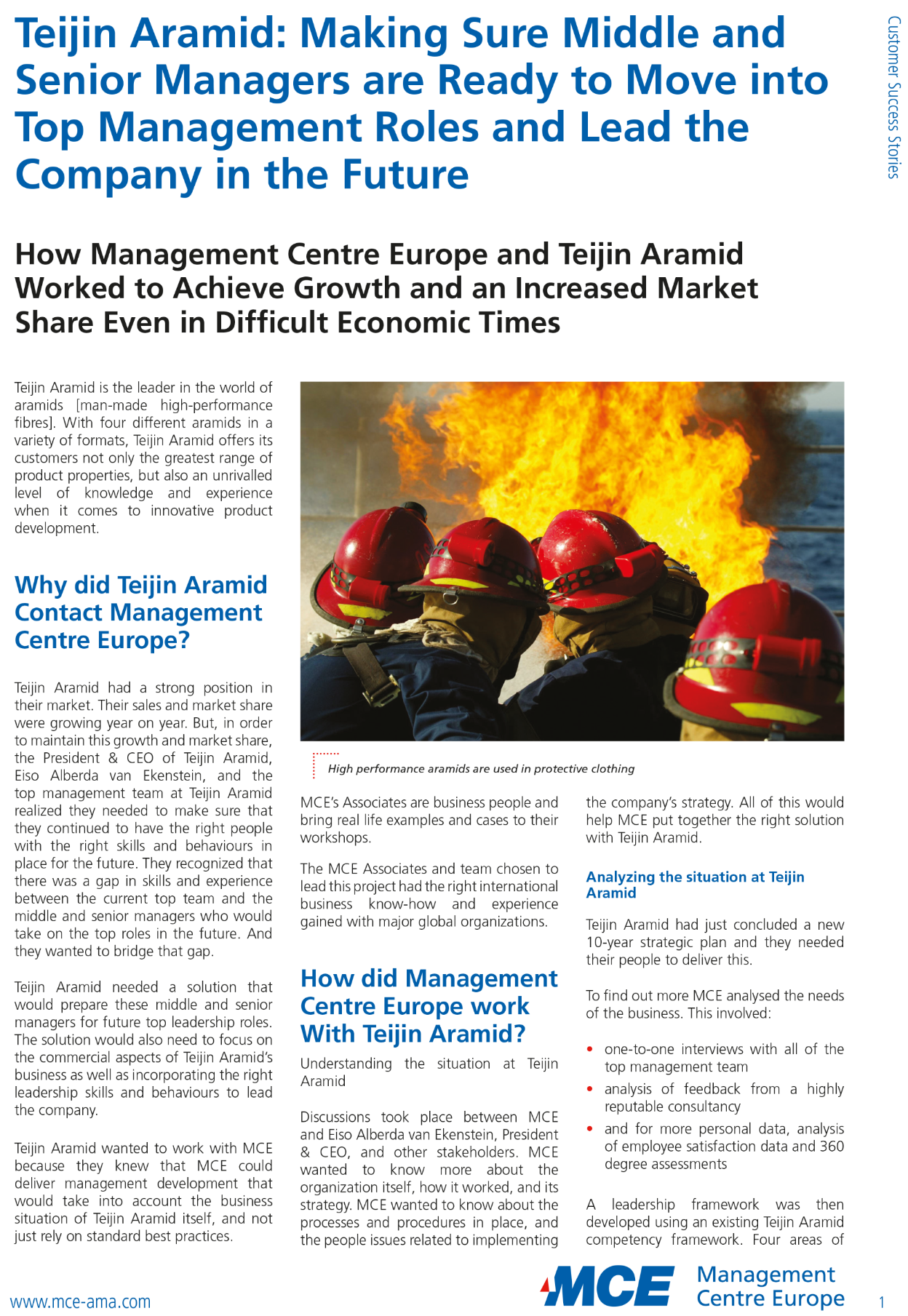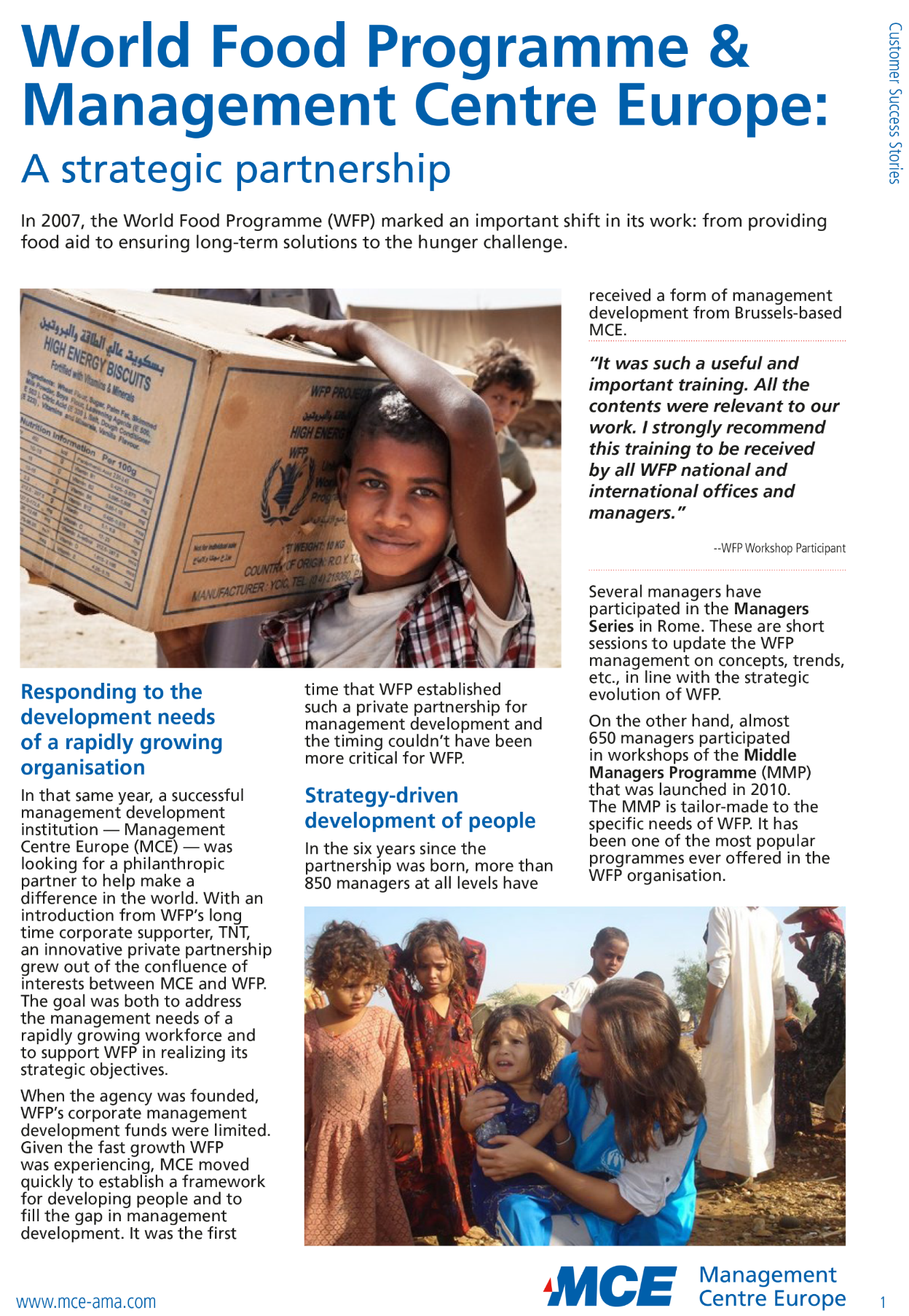
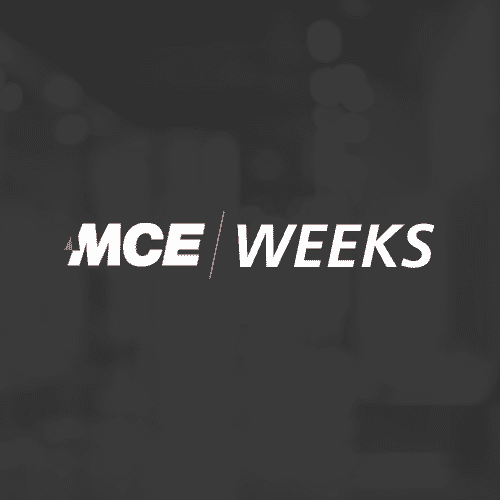
Overview
Learn more
Learn to inspire your team, strengthen emotional intelligence, and handle conflict in a professional manner. You will also learn to delegate tasks effectively and keep your team on track to achieve real results.
HIGHLIGHTS;
• Learn key models to manage conflict in business including:
-The “Model to Disagree” (to turn conflict into discussions)
-The P.U.R.R model (for understanding)
-The 5-step approach (to map conflicts)
• Determine your own personal style profile and gain insights into the strengths and limitations of your profile.
• Identify and build on the strengths of your team's culture.
• Develop a specific personal plan for applying what you learn.
KEY COMPETENCES:
• Motivation, delegation and giving feedback
• Emotional intelligence
• Ethical leadership
• Conflict management
• Understanding real interests
• Turning disagreements into positive business discussions
The Right Programme for you
You have been faced with conflict in your team, department or organization and you need to develop the right skills to manage it effectively and positively successfully through clear communication, a cooperative attitude and commitment to shared goals.
• Managers
• Senior Managers
Learn, Practice and Use
• Motivate every member of your team,even if they are very different
• Resolve conflict more effectively in a wide variety of situations
• Get more done by using the best delegation techniques for each situation
• Turn difficult people and poor performers into team players
• Win the cooperation and trust from people in your organization
• Increase your confidence, management skills, and personal and professional satisfaction in your job by managing people successfully
• Recognize the underlying causes of conflict in business
• See the difference between disagreement and conflict
• Map conflict using a five-step approach
• Identify ways to develop flexible responses to personal and professional conflicts
• Turn disagreements into positive discussions by applying the “Model to Disagree”
• Know how trust is lost and regained during disputes
Programme Modules
What will you learn and practice?
Managing People & Conflicts is a highly interactive programme with exercises and role plays
1 – The Experience of Being a Manager
- How to get people to want to do what they’re supposed to do
- Specific challenges you face when motivating others
2 – Values
- Values and their impact on work life
- How values can have productive and nonproductive results
- Identify value conflicts in yourself and in others
3 – Personal Styles
- Determine your own personal style profile
- Gain insight into the strengths and limitations of your profile
- Use behavioural clues to determine others’ personal styles
- How to work more effectively with other personal profiles
4 – Motivation
- Employee motivation factors and their impact on behaviours and work settings
- How to tailor your motivational efforts to individual employees and different situations
5 – Listening, Body Language, Giving Feedback, and Dealing with Difficult People
- Use active listening to gain information and understand employees’ perspectives
- Effectively apply positive and corrective feedback
- Use appropriate values alignment when dealing with difficult employees
6 – Conflict Management
- The dimensions of conflict resolution
- Identify your own preferred conflict-resolution styles for better conflict management
- Use different conflict resolution styles in different situations
7 – Delegation
- Different delegation styles: How and when to use them
- Determine the appropriate delegation style for employees and situations
8 – Understanding Organizational Culture and Subculture
- The impact of organizational culture and subculture and “cultural blinders”
- Explore the assumptions that impact your team’s thinking and actions
- Identify and build on the strengths of your team’s culture
9 – Emotional Intelligence
- The components of emotional intelligence
- Gain an honest and accurate assessment of yourself
- Develop an improvement strategy
10 – Ethical Leadership
- Identify your group’s values
- Your vision for ethical leadership
11 – Action Planning
- Develop a specific plan for applying what you’ve learned back on the job
- Identify people who can support your action plans
12- Developing Conflict Awareness
- Recognising the difference between disagreement and conflict
- Understanding the five levels of a conflict
- Exploring barriers to conflict management and resolution
13- Responding to Conflict
- Identifying your own feelings and actions in response to conflict
- Applying the P-U-R-R Model to demonstrate understanding
- Utilising the validating process
- Distinguishing between listening for thoughts and listening for feelings
14- The Role of Trust in Minimising Conflict
- Describing the 4 Cs as the cornerstones of building trust
- Knowing how trust is lost and regained, and how transparency validates trust
- Identifying interests behind positions
15- Conflict Strategies
- Identifying your preferred strategies for responding to conflict
- Understanding the five conflict strategies
- Exploring appropriate strategies to minimise/manage conflict
16- Moving Beyond Conflict
- Knowing why relationship conflict and content conflict should be handled differently
- Turning potential disagreements into discussion by applying the Model to Disagree
- Identifying and practising assertiveness tools and strategies
- Detoxifying emotional statements and devising alternative ways to express the message
17- Dealing with Difficult Behavior
- Explaining the difference between difficult people and difficult behaviour
- Understanding how to handle passive behavior
- Developing a strategy for handling passive or aggressive behaviour
18- Mapping the Conflict
- Mapping a conflict using a 5-step approach
- Exploring a given conflict from various “viewing points”
- Separating interests from positions in a specific conflict
- Selecting a conflict strategy appropriate to addressing a specific goal
- Implementing a chosen conflict strategy
19- Thunderstorms
- Applying skills to address emotionally tense conflicts (called Thunderstorms)
- Using skills to address an intra-group conflict case study
- Planning for future development to effectively respond to conflict
Testimonials
“ It is a perfect possibility to connect with people from different industries, who are dealing with the same issues.”
Agata Kulik, Product Manager Special Salts, Jungbunzlauer Ladenburg GmbH, Germany
“ Facilitator, content, tools, methods, room were very good and fitted to the participants and their needs.”
Andreas Armenat, Head of Production, GO Generics & Standard Solutions, Fresenius Kabi AG, Germany
“Very interesting topics, international and multicultural environment. Very professional coach.”
Alessandro Foresio, Vice President, Logic S.p.A., Italy
“The subjects covered were extremely relevant and gave input to my personal development.”
Rosa Karen Schmidt, Senior VP-Assistant, Novo Nordisk, Denmark
FAQ
ABOUT MCE’s OPEN ENROLMENT PROGRAMMES
What time does the programme start and finish?
MCE programmes start at 9:00 and finish at 17:00. Lunch is a 1-hour break and there are two coffee breaks too. On the last day, the programme finishes at 16:30 as we know a lot of people have to catch planes and trains.
What should I wear (dress code) when participating in an MCE Programme?
Most participants wear Business Casual clothes. A formal business suit is not necessary.
Are there MCE approved/recommended hotels?
Yes, each programme has recommended hotels that have the best rates. We include details of these hotels in your registration pack.
Are meals included? I don’t eat certain food. Can I order special meals?
Lunch is provided every day and we always organize a buffet so you have a good choice of foods to cater for different needs.
Are there evening activities?
Your evenings are free, although there some exceptions (e.g. On the MCE Leadership Development Programme there is an activity on day 3)
Is there a free Wi-Fi?
For programmes at MCE in Brussels, there is free Wi-Fi throughout the building. For other locations, the services can vary, but in most locations we have organized free Wi-Fi.
What level of English do I need to take part in an MCE Programme?
MCE’s participants come from over 90 different countries but all of our open enrolment programmes are run in English. You need to have a good working knowledge of English to be able to fully participate in the programme and network with other participants. If you have difficulty understanding these questions, the programme might be difficult for you too.
Will I get a certificate at the end of the programme?
Yes, a certificate of attendance is provided to you upon successful completion of the programme.
CONTENT OF MCE’S OPEN ENROLMENT PROGRAMMES
Are MCE programmes certified by an official body/organization?
10 of MCE’s top selling programmes are approved by Project Management Institute and you can find more information on these programmes here.
What is the MCE approach to learning and development?
All of MCE’s Open Enrolment programmes are based on MCE’s FEEL-THINK-DO and 70-20-10 principles to enable effective learning transfer.
Who designs MCE programmes?
Our Portfolio team together with the core MCE Senior Associates design all of our programmes based on the ROPES model.
Are MCE’s Programmes practical?
MCE’s programmes are all designed to allow to practice what you have learnt. So you will have lots of time to practice, practice and practice.
REGISTRATIONS, PAYMENTS AND FEES
Are VAT rates included in the price?
The price advertised in this page is VAT excluded and applicable to clients and companies legally based in the European Union.
All clients outside the European Union (EU), e.g. Middle East, Africa, Asia and America, are exempt from VAT rates. For them, the price advertised here is the final price to be paid.
- One exception: Training Programmes in France. All clients (inside or outside the European Union) following training programmes in France are liable to 20% VAT rates in all cases.
When are VAT rates applicable to me?
In the case of clients and companies legally based in the European Union, VAT rates will be added to the price in the following cases:
- If the client is a natural person (B2C) without a VAT number. 21% VAT applicable.
- If the training programmes runs in France: 20% VAT applicable.
- Also applicable to clients outside the European Union (EU)
- Except when
- The client is VAT-exempt
- If the client is legally registered in Belgium (independent from where in Europe the training programme is followed): 21% VAT applicable.
- Except when:
- The client attend the training programme in France: 20% VAT applicable instead.
- The client is VAT-exempt
- If the client does not provide a corporate VAT number or does not have any VAT number: 21% VAT applicable (Only applicable to clients in the EU).
- Except when:
I don’t have approval from my finance team yet, can I make a tentative registration?
Yes, simply contact us and we will hold a place for you.
Is hotel accommodation included in the programme fee?
No, participants are expected to arrange their own accommodation and travel. The Programme fee covers the programme attendance, materials, lunches & refreshments.
Does MCE give discounts or grants for individual registrations?
MCE works mostly with companies and organizations and we can provide corporate deals for group bookings or preferred supplier deals. If you would like to discuss a corporate deal, we will be happy to talk to you.
Can I pay with my corporate credit card?
Yes, you can. We accept VISA, Mastercard and Amex.
Does MCE have corporate deals/frameworks available?
Yes, we have. Please contact us for more information.
Can I cancel or change my booking free-of-charge?
At MCE, we understand that business people have commitments and changes do happen. So you can cancel or change your registration up to 21 days before the programme starts without any fees or charges. After that date, you will need to pay full fees, but you are allowed to transfer once to a new programme date.
The MCE Team is ready to answer any questions you have. Please contact us by phone, email, contact form or even website chat. We would be happy to talk to you!
Managing for Success: Spotting Danger Signals and Fixing Problems Before They Happen
AUTHOR: Morgen Witzel PUBLISHER: Bloomsbury : ISBN 978-1-4729-0496-6 246 pages What’s it about ? Simply, a grand and glorious…
The Little Book of BIG Management Theories
AUTHOR: James McGrath & Bob Bates PUBLISHER : Pearson : ISBN 978- 0 -27378526-2 253 pages What’s…
The Business of Sharing: Making it in the New Sharing Economy
AUTHOR: Alex Stephany PUBLISHER: Palgrave Macmillan : ISBN 978-1-137-37617-6 What’s it about ? An Insider’ Guide to the NEXT economy. Like…
The Success Formula: How Smart Leaders Deliver Outstanding Value
AUTHOR: Andrew Kakabadse PUBLISHER: Bloomsbury: ISBN 978-1-4729-1684-6 What’s it about? Well, er – Leadership actually. Although somewhat buried in annoying consult- sleaze…
Communicate to Inspire: A Guide for Leaders
AUTHOR: Kevin Murray PUBLISHER: Kogan Page: ISBN 978-0-7494-6814-9 What’s it about? Well, as with everything else these days it’s about – wait…
The Leadership Skills Handbook: 50 Essential Skills you need to be a Leader
AUTHOR: Jo Owen PUBLISHER: Kogan Page: ISBN 978–0–7494–7156–9 What’s it about? Well, leadership for a start. There’s a cynical theory…
Amgen
In 2013, Amgen Europe concluded that instead of focusing on external resources such as MBA recruitment programmes to fulfil senior-level…
Schindler
Founded in Switzerland in 1874, the Schindler Group is a leading global provider of elevators, escalators and related services. To…
IGT
IGT is one of the largest commercial operators and providers of technology in worldwide gaming markets. The industry is changing…
Actelion
Actelion Pharmaceutical Ltd is a leading biopharmaceutical company focused on the discovery, development and commercialization of innovative drugs for diseases…
Crompton Greaves
Crompton Greaves is India’s largest private sector electrical engineering company. To achieve its strategy, Crompton Greaves knows that it has…
NATO/OTAN
When top leaders at NATO began “The NATO Leadership Journey” and the associated suite of MCE-facilitated leadership programs in 2008,…
Teijin Aramid
At Teijin Aramid, sales and market share were growing year on year. But, to maintain this growth and market share,…
UN World Food Programme
In 2007, the World Food Programme (WFP) marked an important shift in its work: from providing food aid to ensuring…

